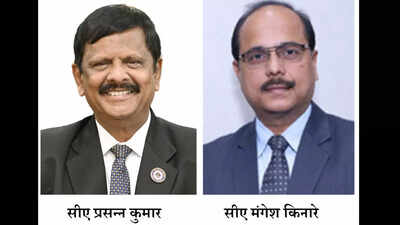Engineer’s Day 2025: 5 ways engineering curriculums can create next generation of entrepreneurs

In India, September 15 is marked as Engineer’s Day annually, to celebrate the birthday of Sir Mokshagundam Visvesvaraya or Sir MV, one of the greatest Indian civil engineer and reputed statesman. Engineering has long been associated with problem-solving, design and innovation and this day honours the brilliance, creativity and dedication of engineers who make our life easier, smarter and better by shaping our world with innovation and precision.In today’s fast-changing world, engineers are not just builders of technology, they are increasingly the founders of startups, the creators of disruptive products and the leaders of entrepreneurial ventures. From Elon Musk (engineering and physics) to Larry Page and Sergey Brin (computer science PhDs), some of the most impactful entrepreneurs began their journey in technical classrooms.India is currently standing at the threshold of a new era where it is stepping into a moment of extraordinary possibility but in this AI-driven world, knowledge alone is not enough. In an interview with TOI Education, Dhruv Marwadi, Trustee at Marwadi University, opined, “The future belongs to those who pair technical depth with creativity, critical thinking and collaboration. Imagine every engineering program as a thriving garden of possibilities, not a rigid track where students can explore science alongside history, art and psychology, where failure is not the end but part of growth. Where engineers don’t just solve problems but reimagine what’s possible next in Industrialisation 4.0.”Across the world, interdisciplinary learning is shaping global leaders. Marwadi asserted, “India too must nurture this capability. If we spark imagination and collaboration in our classrooms, we won’t just graduate engineers; we’ll inspire innovators and leaders who carry India forward and the timing couldn’t be better! Through Viksit Bharat, India is actively empowering youth, creators, and entrepreneurs with policies, innovation missions and transformative reforms. The foundation is strong, and the moment is now. The synergy between entrepreneurship and engineering is marvellous, resulting in force-multiplication. Together, they shape a future where India doesn’t just dream but builds, delivers and leads.”Engineering education is already about solving problems. By rethinking the curriculum to include business literacy, real-world projects, interdisciplinary teamwork, mentorship and resilience training, universities can transform engineers into the next wave of entrepreneurs. The world’s most pressing challenges, from climate change to healthcare, demand not only brilliant technical solutions but also entrepreneurial leaders bold enough to bring them to life. The future of entrepreneurship may well be born in engineering classrooms. This Engineer’s Day, let us explore how engineering curriculums evolve to nurture this entrepreneurial potential at scale.
Integrating business skills into engineering courses
A purely technical curriculum may produce strong engineers but not necessarily entrepreneurs. Engineering curriculums should embed modules on marketing, finance and business model development, so students can translate their technical solutions into market-ready ventures. According to a 2012 study published in the Journal of Engineering Education, students who were exposed to entrepreneurship education within engineering programs showed higher entrepreneurial intent and confidence compared to those in traditional programs.
Encouraging problem-based learning and real-world challenges
Entrepreneurs thrive when solving real problems. Universities should partner with industries, NGOs and startups to provide students with real-world challenges, bridging the gap between theory and application. A 2015 study in the International Journal of Engineering Education showed that project-based, entrepreneurial learning increased creativity, resilience and teamwork skills among engineering students.
Building cross-disciplinary collaboration
Innovation rarely happens in silos. Engineering schools can encourage collaborations with business schools, design schools and even liberal arts programs to spark holistic innovation. A 2001 research paper in the Academy of Management Learning & Education Journal emphasized that entrepreneurial competencies grow when students collaborate across disciplines, combining technical know-how with design, business and social science perspectives.
Mentorship and startup ecosystems on campus
Entrepreneurship cannot be learned only in the classroom, it needs mentorship and ecosystems. Engineering curriculums should integrate startup accelerators, seed funding competitions and mentorship networks directly into the academic experience. A 2011 study in the Journal of Small Business Management found that university incubators and mentorship programs significantly improved students’ chances of launching viable startups.
Normalising failure as a learning tool
One of the biggest hurdles for young entrepreneurs is the fear of failure. Engineering programs should include iterative design processes, hackathons, and “fail-fast” projects to help students build resilience. A 2004 study in the Entrepreneurship Theory and Practice Journal highlighted that students who were encouraged to treat failure as feedback developed stronger problem-solving and entrepreneurial persistence.Bringing his expertise to the same, Varun Dhamija, Chief Digital Strategy Officer at TimesPro, said, “Engineering curriculums in India have the potential to become the breeding ground for the next generation of entrepreneurs by fostering a mindset of innovation, problem-solving, and adaptability. With AI transforming industries at an unprecedented pace, integrating AI-focused courses, hands-on projects and startup incubation programs can empower students to create tech-driven solutions for real-world challenges. By bridging traditional engineering principles with cutting-edge AI technologies, we can shape a generation of engineers who not only build but also lead, driving India’s entrepreneurial ecosystem to global prominence.”






